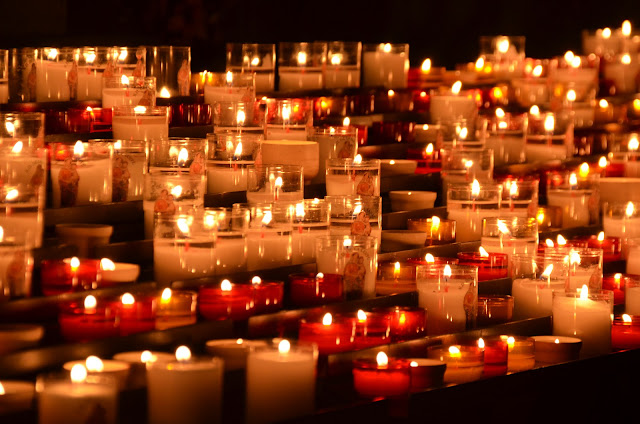Losing a loved one is one of the most challenging things a person can go through. The grieving process can be very long and emotional, and it is different for everyone. There are, however, some general tips that can help you get through this difficult time. This blog post will discuss the five stages of grief, as well as some helpful tips for each stage.
1) Denial
The first stage of grief is denial. This is when you refuse to believe that your loved one is gone. You may feel like this can't be happening, and you may try to convince yourself that it isn't real. Denial can be a way of protecting yourself from the pain of loss.
It's important to allow yourself to go through this stage, even though it can be difficult. Try not to fight your feelings, and let yourself grieve in whatever way you need to. Some tips for getting through denial include:
- Talk about your loved one with other people who knew them. This can help you remember all the good times you had together, and it can also help make their death feel more real.
- Talk to a counselor or therapist. This can be a great way to get support from someone who is impartial, and they can also offer helpful tips for dealing with your grief.
2) Anger
The second stage of grief is anger. This is when you start to feel angry about your loss. You may be angry at the person who died, at yourself, or at the world in general. You may even lash out at the people around you. It's important to remember that this is a normal part of the grieving process and that it's okay to be angry. Some tips for dealing with anger during grief include:
- Talk to someone about what you're feeling. It can be helpful to talk to someone who will understand and won't judge you for your feelings.
- Write down your thoughts and feelings. This can help you to express what you're going through, and it can also help you to see your progress as you move through the stages of grief.
- Do something to release your anger. This could be physical activity, like going for a run or hitting a punching bag. Or it could be creative, like painting or writing. Doing something to release your anger can help you to feel better and may also help you to avoid taking your anger out on the people around you.
- Remember that your anger is normal. It's okay to be angry, and it's okay to express that anger. Just try to do so in a healthy way.
3) Bargaining
The bargaining stage is often characterized by a person feeling immense guilt. They may even try to make deals with God in an attempt to bring their loved ones back. This is usually an incredibly difficult stage to get through because it's so full of self-blame and What Ifs.
If you find yourself bargaining, try to remember that it's natural and normal to want to turn back time and change what happened. But unfortunately, that's not possible. The best thing you can do is focus on the present moment and the people who are still in your life. It may also be helpful to talk about your feelings with a therapist or counselor. They can help you work through the guilt you may be feeling and help you find ways to cope with your loss.
4) Depression
The fourth stage of grief is often characterized by feelings of depression and loneliness. This is because, after the reality of the loss sets in, you may start to feel like you'll never be able to be happy again.
Depression can make it hard to get out of bed in the morning or even take care of yourself. If you're struggling with depression, it's essential to reach out for help. Talk to your doctor about how you're feeling, and they can help you find ways to cope. Also, make sure to lean on your friends and family during this time. They can provide you with the support you need to get through this challenging stage. Some common symptoms of depression include:
- Feeling hopeless or helpless
- Losing interest in hobbies or activities that used to bring joy
- Sleeping too much or not being able to sleep
- Eating too much or not enough
- Isolating yourself from friends and family
- Experiencing physical pain without a known cause
5) Acceptance
The final stage of grief is acceptance. This doesn't mean that you're okay with what happened or that you've forgotten about your loved one. It just means that you've come to terms with the fact that they're gone and that life must go on.
During this stage, you may start to feel more like yourself again. You may even find yourself laughing and enjoying life once more. But it's important to remember that grief is a lifelong process. You will always have good days and bad days. And that's okay.
Additionally, it's crucial to find ways to keep your loved one's memory alive. This could be through photos, journals, cemetery bronze grave markers, or even tattoos. Whatever you do, make sure it's something that brings you comfort and makes you feel connected to your loved one.
In conclusion, grief is a complicated and difficult emotion to deal with. But it's important to remember that you're not alone. There are people who care about you and want to help you through this tough time.


No comments:
Post a Comment